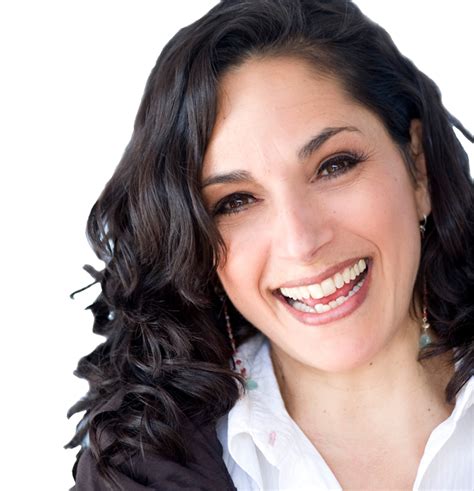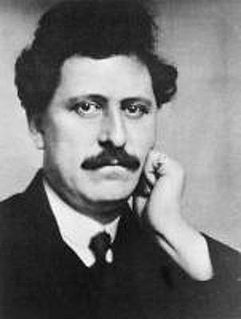A Quote by Charles Francis Adams, Sr.
More than all, and above all, [George] Washington was master of himself. If there be one quality more than another in his character which may exercise a useful control over the men of the present hour, it is the total disregard of self when in the most elevated positions for influence and example.
Related Quotes
Brains and character rule the world. The most distinguished Frenchman of the last century said: Men succeed less by their talents than their character. There were scores of men a hundred years ago who had more intellect than Washington. He outlives and overrides them all by the influence of his character.
He is not famous. It may be that he never will be. It may be that when his life at last comes to an end he will leave no more trace of his sojourn on earth than a stone thrown into a river leaves on the surface of the water. But it may be that the way of life that he has chosen for himself and the peculiar strength and sweetness of his character may have an ever-growing influence over his fellow men so that, long after his death perhaps, it may be realized that there lived in this age a very remarkable creature.
The person in peak-experiences feels himself, more than other times, to be the responsible, active, creating center of his activities and of his perceptions. He feels more like a prime-mover, more self-determined (rather than caused, determined, helpless, dependent, passive, weak, bossed). He feels himself to be his own boss, fully responsible, fully volitional, with more "free-will" than at other times, master of his fate, an agent.
From the hindsight of history George Washington seems larger than life, more statuesque than man. Too bad! Washington's greatness as a leader was courage under fire and persistence in the face of obstacles. Yet even he at times doubted himself. But he put those doubts aside and forged ahead, convinced of his noble purpose.
The individual in the ordinary circumstances of living may feel more unreal than real; in a literal sense, more dead than alive; precariously differentiated from the rest of the world, so that his identity and autonomy are always in question.... He may not possess an over-riding sense of personal consistency or cohesiveness. He may feel more insubstantial than substantial, and unable to assume that the stuff he is made of is genuine, good, valuable. And he may feel his self as partially divorced from his body.
Many are the lives of men unwritten, which have nevertheless as powerfully influenced civilization and progress as the more fortunate Great whose names are recorded in biography. Even the humblest person, who sets before his fellows an example of industry, sobriety, and upright honesty of purpose in life, has a present as well as a future influence upon the well-being of his country; for his life and character pass unconsciously into the lives of others, and propagate good example for all time to come.
I have learned to accept it, even ask for it, this 'more than I can handle.' Because in these times, God shows Himself victorious. He reminds me that all of this life requires more of Him and less of me. God does give us more than we can handle. Not maliciously, but intentionally, in love, that His glory may be displayed, that we may have no doubt of who is in control, that people may see His grace and faithfulness shining through our lives.
His master’s pain was his pain. And it hurt him more for his master to be sick than for him to be sick himself. When the house started burning down, that type of Negro would fight harder to put the master’s house out than the master himself would. But then you had another Negro out in the field. The house Negro was in the minority. The masses—the field Negroes were the masses. They were in the majority. When the master got sick, they prayed that he’d die. If his house caught on fire, they'd pray for a wind to come along and fan the breeze.
...being human always points, and is directed, to something, or someone, other than oneself—be it meaning to fulfill or another human being to encounter. The more one forgets himself—by giving himself to a cause to serve or another person to love—the more human he is and the more he actualizes himself.... What is called self-actualization is not an attainable aim at all, for the simple reason that the more one would strive for it, the more he would miss it. In other words, self-actualization is possible only as a side-effect of self-transcendence.
There is something more important than any ultimate weapon. That is the ultimate position-the position of total control over Earth that lies somewhere out in space. That is . . . the distant future, though not so distant as we may have thought. Whoever gains that ultimate position gains control, total control, over the Earth, for the purposes of tyranny or for the service of freedom
With the situation as gray as it could be, no one was more conspicuous in his calm presence of mind than Washington. They must be "cool but determined" he had told the men before the battle, when spirits were high. Now, in the face of catastrophe, he was demonstrating what he meant by his own example. Whatever anger or torment or despair he felt, he kept to himself.
God has made us so that we must be mutually dependent. We may ignore our own dependence, or refuse to acknowledge that others depend upon us in more respects than the payment of weekly wages; but the thing must be, nevertheless. Neither you nor any other master can help yourselves. The most proudly independent man depends on those around him for their insensible influence on his character - his life.
If idioms are more to be born than to be selected, then the things of life and human nature that a man has grown up with--(not that one man's experience is better than another's, but that it is 'his.')--may give him something better in his substance and manner than an over-long period of superimposed idiomatic education which quite likely doesn't fit his constitution. My father used to say, 'If a poet knows more about a horse than he does about heaven, he might better stick to the horse, and some day the horse may carry him into heaven'


































